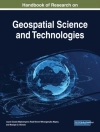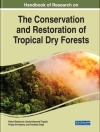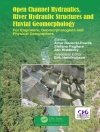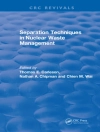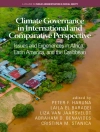This book introduces a planning support system called Strategic Spatial Plan Support System (SSP-SS) to visualize population growth and predict energy demand, land use, and waste discharge resulting from urbanization. By analyzing policy interactions between household agents, the book uses SSP-SS to visualize policy effects on urban areas during stages of growth and decline. Simulations are created based on these policy outcome assessments, taking into account the influences of energy and resource consumption on sustainable development in urban environments. The book is geared towards researchers, universities, and urban policy makers.
The book begins by presenting a framework of urban growth simulation, and introducing SSP-SS. Then, household lifecycle and relocation models are employed for simulating policy impacts on urbanization, and investigating the impacts of spatial strategic planning. Several projects are assessed using agent-based modeling including shopping centre construction, day-care service for aging populations, and shelter accommodation capacities for earthquakes and other disasters. The final chapters discuss water and energy management, the environmental impacts of demand and consumption, and future recommendations for sustainable development and policy implementation.
Introduces Strategic Spatial Plan Support System (SSP-SS) to visualize population growth and predict energy demand, land use, and waste discharge resulting from urbanization.
Analyzes policy effects on urban areas during stages of growth and decline.
Discusses the influences of water and gas consumption on environmental issues in urban areas for sustainable development.
表中的内容
Chapter 1. Introduction.- Chapter 2. Framework for urban growth simulation driven by strategic spatial plan.- Chapter 3. Household lifecycle model employed as basement for simulating policy impacts on urbanization.- Chapter 4. Household residential relocation model for investigating impact of spatial strategic policy.- Chapter 5. Simulating household shopping choices for verifying location policy of large-scale shopping centre.- Chapter 6. Simulating policy impact of community-based facility location on day-care service for aged population.- Chapter 7. Evaluating evacuee number and capacity of accommodation shelters for earthquake disaster.- Chapter 8. Water consumption behaviors and water price negotiation between government and households for domestic water management.- Chapter 9. Household energy consumption and environment tax in urban area.- Chapter 10. Conclusions.
关于作者
Dr. Zhenjiang Shen’s research interests include policy-making support system for planning and design using GIS & VR. He served as commissioner of Chugoku Branch of Architectural Institute of Japan, and planning advisor in local cities such as Nanao city, Kanazawa city in Japan and developed on-line design tools for enhancing public participation. Dr. Shen also participated in strategic spatial planning of local cities in China, and cooperated with Beijing Municipal Commission of Urban Planning for metropolitan growth simulation. He is a commission member of Commission on Geospatial Analysis and Modeling of International Cartographic Association (ICA), Landscape East Asia Researchers Network (LEA), City Planning Institute of Japan (CPIJ) and also works as a joint member of Fudan University and Ph.D. Instructor in Tsinghua University, China. Dr. Shen is Editor-in-chief of IRSPSD International, managing Editor of IJSSS and IJSSoc, and organizes an International Community on Spatial Planning and Sustainable Development.
Dr. Yan MA is an Associate Professor in Fuzhou University. She finished her undergraduate education and Master course in the School of Resources and Environmental Science at Wuhan University in China, and got Ph.D. from the Graduate School of Natural Science and Technology, Kanazawa University, Japan. She is a member of Architectural Institute of Japan (AIJ), City Planning Institute of Japan (CPIJ), and served as Editorial Board member of International Review for Spatial Planning and Sustainable Developmen. Dr. Ma was Scientific Committee member of International Conference on Computers in Urban Planning and Urban Management 2011, and Scientific Committee member of International Conference on Spatial Planning and Sustainable Development 2011. She organized International Symposium of Urban Planning and Management of SPSD community and served as secretary of board of directors of International Community of Spatial Planning and Sustainable Development.


